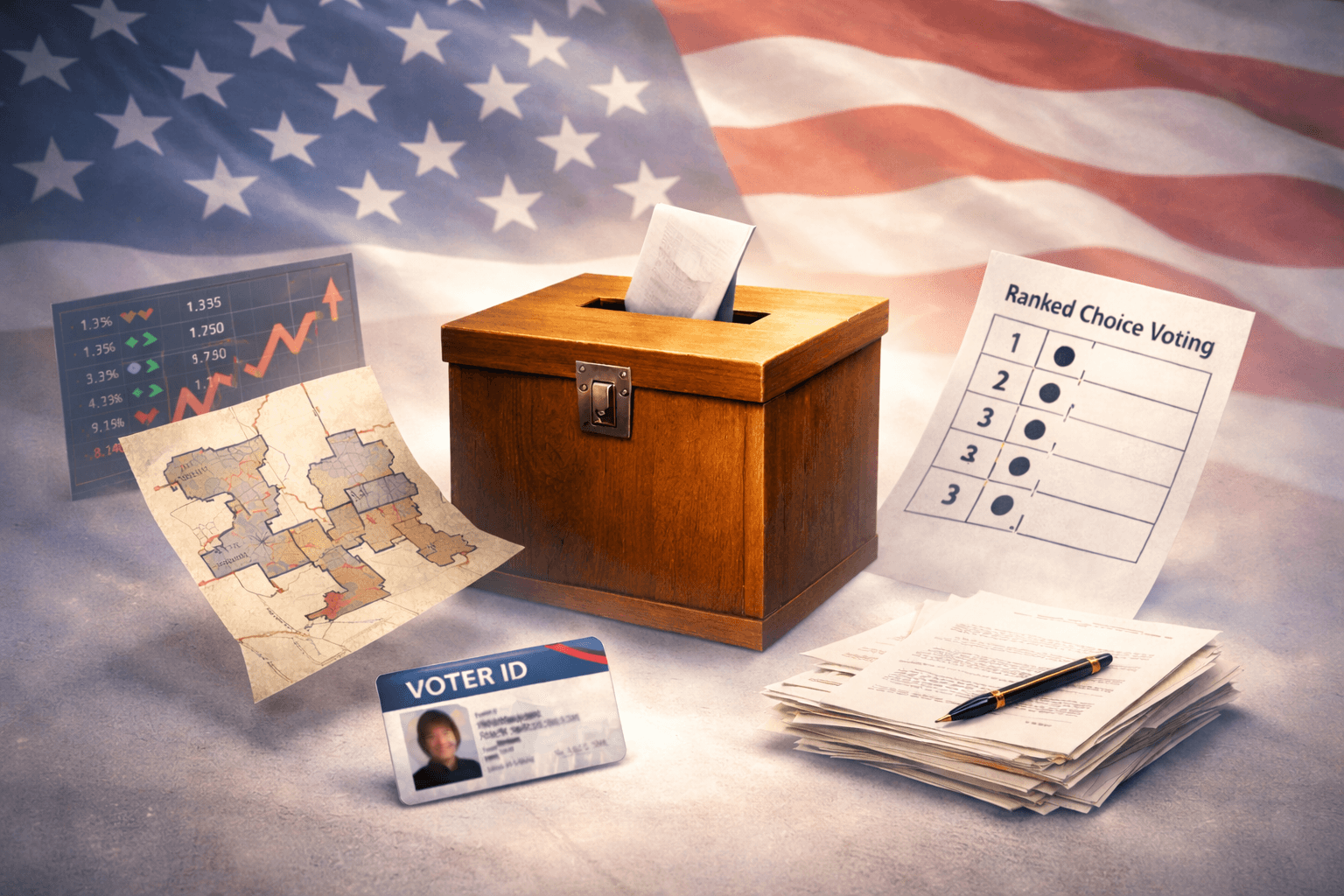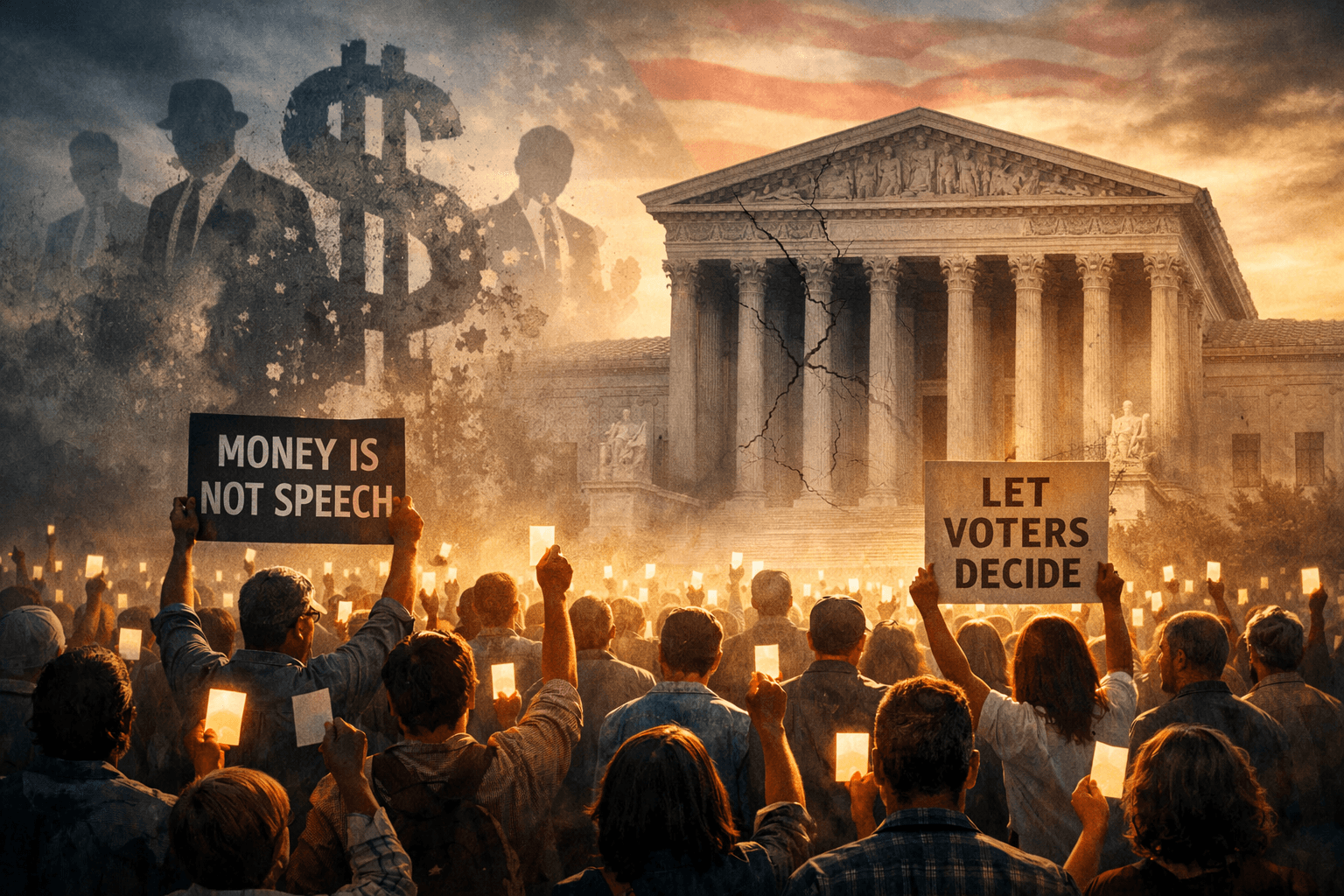Super PACs Drive Record Spending in Wisconsin Supreme Court Race

Early voting starts March 18 in Wisconsin’s high-stakes Supreme Court race. Super PACs have fueled record-breaking spending, which is now close to $59 million and has surpassed the previous record set in 2023 for a state Supreme Court election.
The contest between Dane County Circuit Court Judge Susan Crawford and Waukesha County Circuit Court Judge Brad Schimel will determine the ideological balance of the state’s highest court.
Super PAC Influence in the Race
Twenty percent (20%) of the overall spending in this year’s race comes from two Super PACs operated by billionaire Elon Musk, who has emerged as the Schimel campaign's most prominent financial backer.
Musk-affiliated groups — including America PAC and Building America’s Future PAC — have collectively spent over $12 million supporting Schimel’s bid, according to WisPolitics and filings with the Wisconsin Ethics Commission.
America PAC alone has dedicated nearly $6.2 million to canvassing efforts promoting Schimel. Meanwhile, WisPolitics has tallied $6 million in spending by the Building America’s Future PAC between buys tracked by AdImpact and that group’s filings with the state.
Musk may be vested in who wins the race for the Wisconsin Supreme Court. According to reporting by The Badger Project, “a lawsuit by his electric car company Tesla that argues the state is blocking it from selling its cars directly to consumers could appear before the state’s highest court eventually.”
Direct campaign contributions to the candidates are limited to $20,000 per person. But as Judge Schimel explained recently at a town hall, it doesn’t have to stop there:
“I don't know if you know this, but you can give $20,000 as an individual to a statewide candidate. So, I mean, I'll have to have my friend Jeff take the checks. I can't handle the dirty money, but if you've got your $20,000 checks, he'll take care of those for you tonight."
Schimel added:
"Then, if you want to give a lot more, you can give that to either of the state parties. And they can transfer it…they can transfer that to candidates.”
Crawford has benefited to a much smaller degree from Super PACs. The Wisconsin Conservation Voters Independent Expenditure Committee, a Super PAC, has reported approximately $200,000 supporting her campaign.
Crawford is also being supported by contributions directed through the state Democratic Party, which has received donations from big-name donors, including George Soros and Illinois Gov. J.B. Pritzker.
At a recent debate, Schimel, who is backed by Republicans, called Soros a “dangerous person to have an endorsement from.” Crawford fired back, claiming that Musk “has basically taken over Brad Schimel’s campaign.”
As of early this week, WisPolitics reported that spending in support of Schimel has reached over $33.3 million, compared to $25.5 million backing Crawford. These numbers are expected to grow as Election Day approaches.
How the Candidates Are Spending Their Funds
Crawford had reserved nearly $17.6 million in advertisements leading up to April 1, according to AdImpact. Schimel, by contrast, has spent almost $8.8 million on ad buys so far.
Crawford is currently airing more frequent ads on broadcast television. A WisPolitics check of AdImpact data and a media buying source showed she holds an advantage in gross ratings points, a measure of how often ads are seen on broadcast TV.
National Attention and Historical Context
Two years ago, the campaign between Justice Janet Protasiewicz and former Justice Daniel Kelly drew $56 million in total spending, shattering previous records. Prior to Wisconsin’s recent high-dollar races, the national record for state Supreme Court spending was held by a 2004 Illinois election, which totaled around $15 million (National Institute on Money in Politics).
Election Implications
Beyond the Wisconsin Supreme Court race, voters will also weigh in on a proposed constitutional amendment requiring photo identification at polling places. Supporters argue it would enhance election security, while opponents contend it could lead to voter disenfranchisement
Early voting starts March 18 and continues across Wisconsin until shortly before Election Day on April 1.
 Cara Brown McCormick
Cara Brown McCormick






